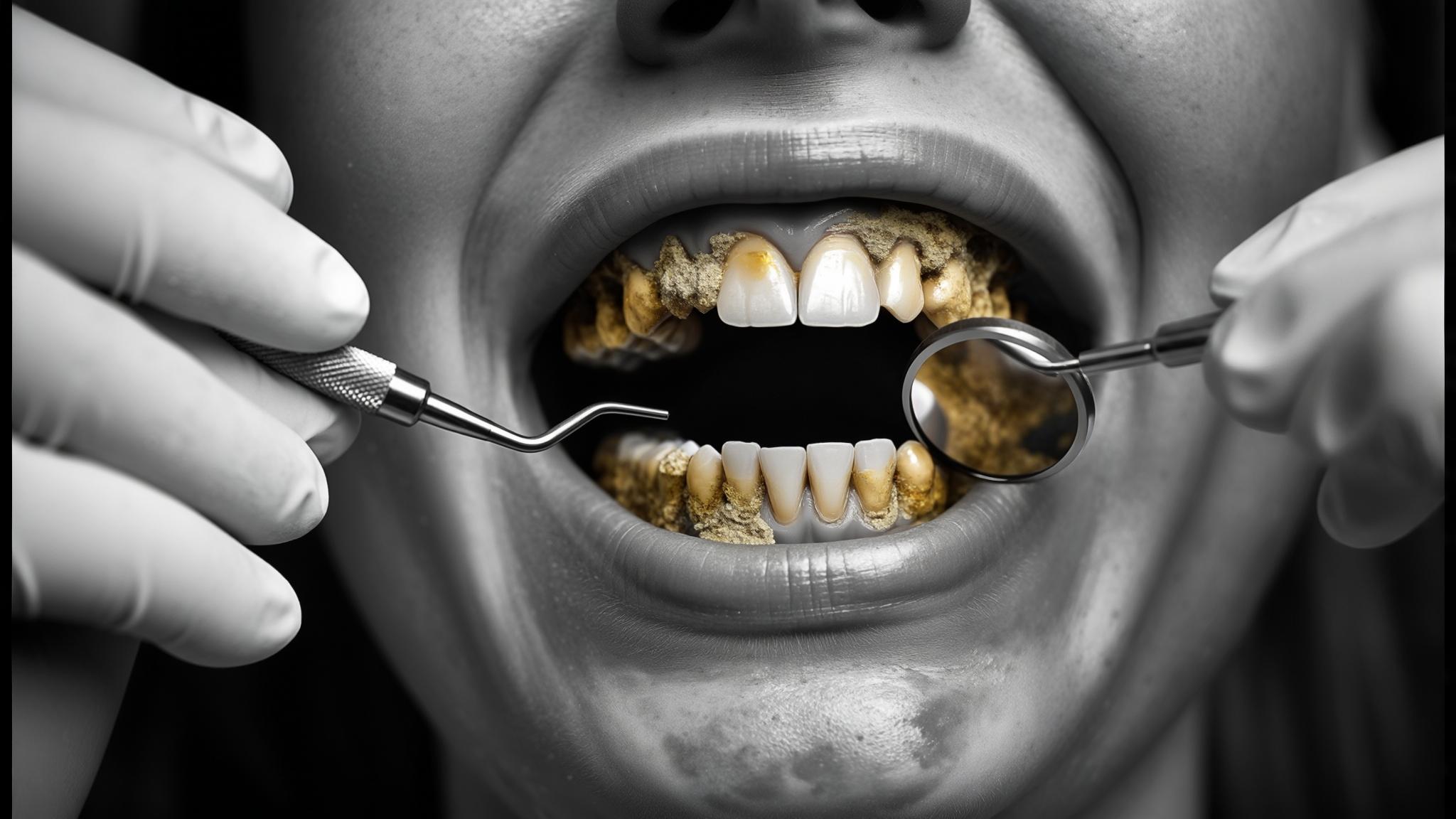Understanding and Managing Severe Tartar and Plaque Buildup
Introduction
Maintaining good oral hygiene is crucial for overall health, yet many underestimate the impact of tartar and plaque. Dental plaque is a sticky film of bacteria that forms on your teeth, while tartar, or calculus, is hardened plaque that can lead to severe dental issues. This article explores the causes, symptoms, and health implications of severe tartar and plaque buildup, aiming to empower you to take control of your oral health.
Understanding Plaque and Tartar
What is Dental Plaque?
Plaque is a soft, colorless film that constantly forms on your teeth. It's composed of bacteria, food particles, and saliva. When you eat, especially sugary or starchy foods, the bacteria in plaque produce acids that can erode tooth enamel, leading to cavities.
What is Tartar (Calculus)?
When plaque is not removed through regular brushing and flossing, it hardens into tartar. This mineralized substance can only be removed by a dental professional. Unlike plaque, tartar is rough and porous, making it easier for more plaque to adhere, thus exacerbating dental issues.
Timeline of Plaque Formation and Tartar Development
Plaque begins forming as soon as four to twelve hours after brushing. If not removed, it can harden into tartar within 24 to 72 hours. Regular oral hygiene practices are essential to prevent this progression.
Causes of Severe Tartar and Plaque Buildup
Poor Oral Hygiene Practices
Infrequent brushing and flossing allow plaque to build up and harden into tartar. Skipping regular dental check-ups can also contribute to severe buildup, as professional cleanings are necessary to remove tartar.
Dietary Factors
A diet high in sugar and carbohydrates feeds the bacteria in plaque, increasing acid production. Acidic foods and beverages can also weaken tooth enamel, making it easier for plaque to form.
Lifestyle Factors
Smoking and tobacco use not only stain teeth but also promote tartar formation. Conditions like diabetes and dry mouth can also increase the risk of plaque buildup.
Genetic Predisposition
Some individuals may be genetically predisposed to more rapid plaque formation, making it even more important to maintain diligent oral hygiene practices.
Symptoms of Severe Tartar and Plaque Buildup
Physical Signs
Visible tartar appears as a yellow or brown deposit on the teeth. It can also cause tooth discoloration.
Sensations and Discomfort
Gum pain and inflammation are common, as is tooth sensitivity. Bad breath, or halitosis, is another telltale sign of severe buildup.
Impact on Daily Life
Difficulty eating and speaking can arise from discomfort or embarrassment about the appearance of your teeth.
Health Concerns Associated with Severe Buildup
Gum Disease (Gingivitis and Periodontitis)
Tartar irritates the gums, leading to gingivitis, the earliest stage of gum disease. If untreated, it can progress to periodontitis, causing gum recession and tooth loss.
Tooth Decay and Cavities
The acids produced by plaque bacteria can erode enamel, leading to cavities and potential tooth decay.
Risk of Systemic Health Issues
Research indicates a connection between oral health and systemic conditions like heart disease, diabetes, and respiratory diseases.
Emergency Situations
Identifying Dental Emergencies Related to Tartar Buildup
Severe pain, swelling, or abscess formation are signs of a dental emergency requiring immediate attention.
Importance of Seeking Immediate Dental Care
Prompt treatment is vital to prevent further complications and alleviate pain.
What to Expect During an Emergency Dental Visit
The dentist will assess the situation, provide pain relief, and may perform procedures to remove tartar or treat infections.
Treatment and Prevention
Professional Dental Cleaning
Regular dental cleanings, including scaling and root planing, are essential to remove tartar and maintain oral health.
Home Care Practices
Proper brushing and flossing techniques, along with the use of mouthwash and interdental brushes, can help prevent buildup.
Lifestyle Changes for Prevention
Adopting a balanced diet, reducing sugar intake, and quitting tobacco use are effective preventative measures.
Conclusion
Addressing severe tartar and plaque buildup is crucial for preventing dental emergencies and maintaining overall health. By prioritizing oral hygiene and regular dental visits, you can ensure a healthy smile and avoid the discomfort associated with severe buildup. Take charge of your oral health today!
References
- American Dental Association: Understanding Plaque and Tartar
- Mayo Clinic: Oral Health and Systemic Health
- National Institute of Dental and Craniofacial Research: Gum Disease

